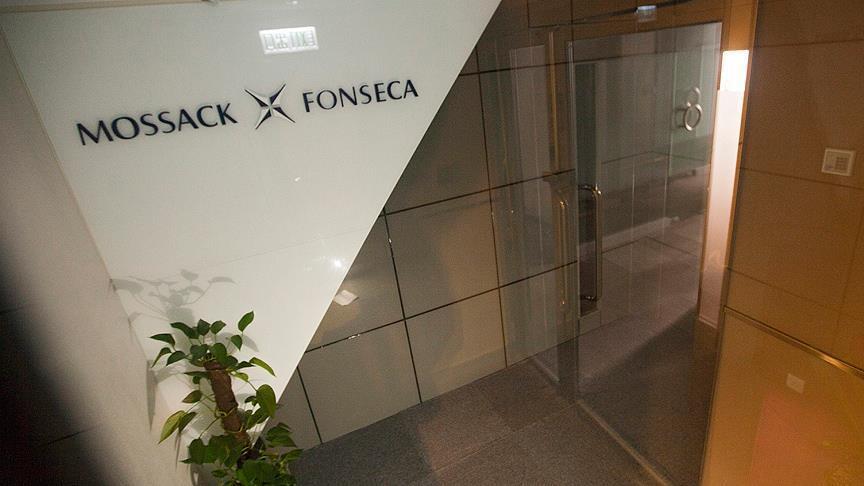Panama files expose mafia links with offshore companies
'I am talking about every kind of mafia, Japanese mafia, and Italian mafia,' director of International Consortium of Investigative Journalists tells AA
 ( Gökhan Kurtaran - Anadolu Agency)
( Gökhan Kurtaran - Anadolu Agency)
Greater London
By Gokhan Kurtaran
LONDON
Some companies mentioned in the Panama files containing over 11 million leaked documents from law firm Mossack Fonseca have links with mafias, Gerard Ryle, director of the International Consortium of Investigative Journalists (ICIJ) has said.
The ICIJ led the Panama leaks investigation and coordinated with media groups from around the world to bring out the stories based on those revelations made by an unknown whistle-blower to a German journalist.
In an interview with Anadolu Agency on Tuesday, Ryle said: “We have found some companies link to mafia. I am talking about every kind of mafia, Japanese mafia, and Italian mafia. They have been convicted of crimes to those things.”
According to ICIJ, 33 companies and people blacklisted by the U.S. government appear in Mossack Fonseca’s files; alleged terrorism and nuclear weapons financiers from the Middle East and North Korea, arms traders and backers of Syria’s barrel bombings have also been found in the documents. While ICIF says Mossack Fonseca employees repeatedly acknowledged failing to properly check blacklisted customers, the law firm has repeatedly denied any wrong doing in statements made to media ever since the leaks came out across the globe.
“We have found a lot of material on South America. They are all using this world. But they are in there using it with legitimate business people. We are focusing on people that are public interest,” he added.
Ryle said three companies were found connected to the Syrian regime or companies which appeared on various sanctions lists.
“For example, with [Syrian President Bashar al-] Assad’s case it was the company that supplied the fuel that allowed him, his regime to bomb his own people,” Ryle said.
“We also found a company in North Korea. Some companies linked to Iranian regime,” he said.
Leaked documents also reveal a $2 billion trail leading all the way to Russian President Vladimir Putin. Putin’s best friend – a cellist called Sergei Roldugin – is at the center of a suspected scheme in which money from Russian state banks is found to be hidden offshore. Some of it ended up in a ski resort where in 2013 Putin’s daughter Katerina got married.
Emphasizing that all leaked documents about Putin’s circle were reliable, Ryle said: “There are definitely some associates of Putin [mentioned in the documents]. There is no doubt about it. One of them is godfather of Putin’s child.
“And then offshore companies are all there; their signatures, passports, everything. There is no doubt in the documents. These are definitely people close to Putin who are benefiters.”
The ICIJ director said that more stories based on leaks are expected to come out in the long run.
Speaking about how the organization got hold of the treasure trove of damaging information, he said: “We don’t know the whistle-blower. This information came to us via Bastian Obermayer, German reporter working for Munich-based Suddeutsche Zeitung.
“There will be more stories. We managed to get more than 180 media organizations around the world interested in it and we got them all working on it now. They have been digging into documents according to relevance for their countries.”
An estimated $21 to $32 trillion of private financial wealth is located, untaxed or lightly taxed, in secret jurisdictions around the world. Secrecy jurisdictions - a term often used as an alternative to the more widely used term tax havens - use secrecy to attract illicit and illegitimate or abusive financial flows, according to Financial Secrecy Index.
Pointing out there should be more substantial changes regarding to the financial laws and banking secrecy in so called tax havens, Ryle said: “I think there will be more pressure on them [tax havens] internationally to basically change rules. Every time major OECD [Organisation for Economic Co-operation and Development] or EU steps in trying to stop tax evasion or introducing new rules, we are seeing in the documents that the offshore world changing tactics and finding a new way of getting around.
“I guess there might be new reforms but it really needs to be really strong. Otherwise it will all go [out]...in a new form.”
Anadolu Agency website contains only a portion of the news stories offered to subscribers in the AA News Broadcasting System (HAS), and in summarized form. Please contact us for subscription options.

